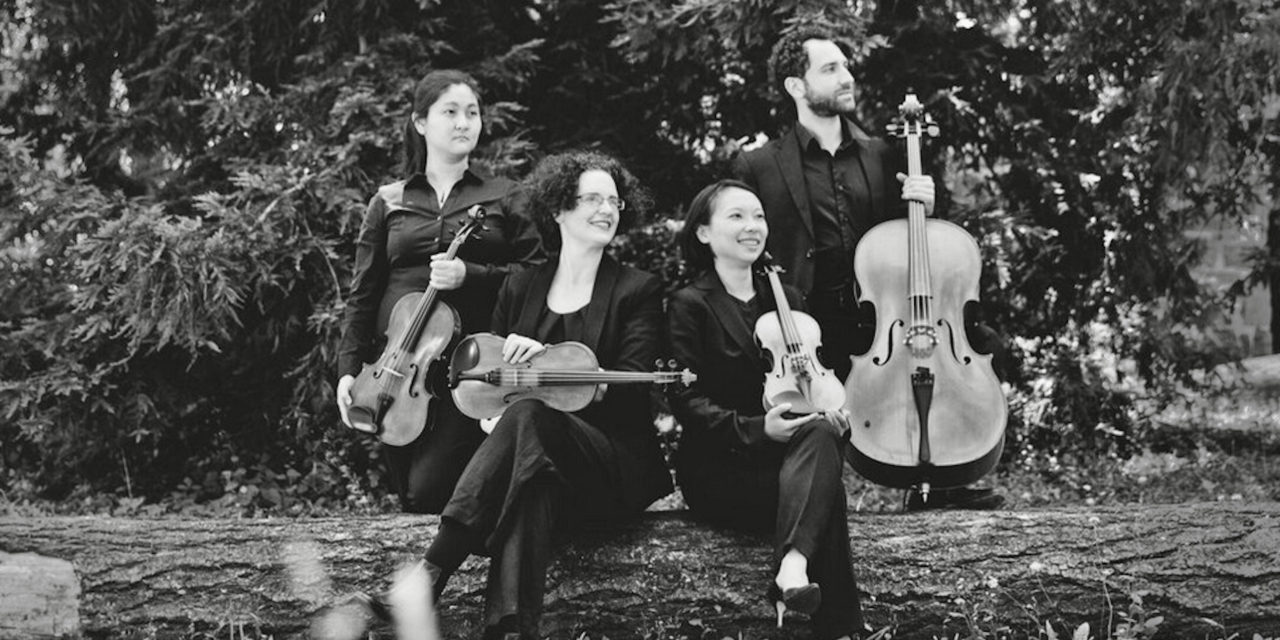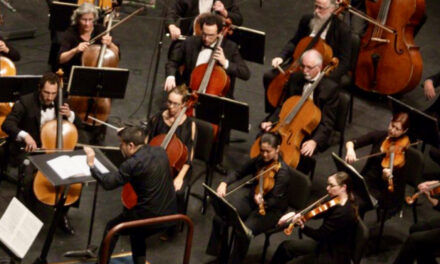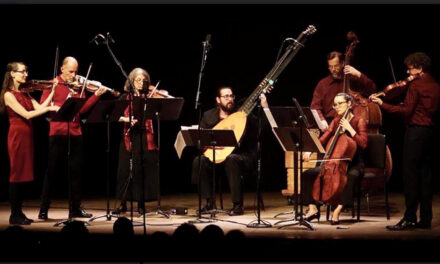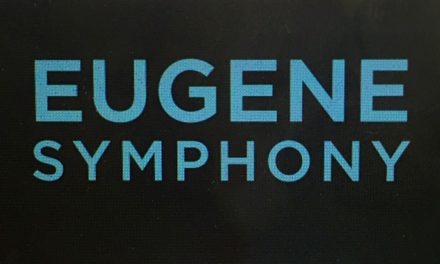By Daniel Buckwalter
The universal language of music took on a decided Latin and Spanish flavor Tuesday night at the First Church of Christ Scientist in Eugene.
From the throaty cello play of Eric Alterman to the soulful sounds of violist Kimberlee Uwate and, finally, the elegance of violinists Anthea Kreston and Jannie Wei, Delgani String Quartet touched on the beauty and the dusty cowboy culture from the countries of birth or heritage of four composers.
It was rich tapestry of sound.
There was Juan Crisóstomo Arriaga’s String Quartet No. 1, the opening piece of the night, composed when the Spanish Basque child prodigy was just 15 years old. He died of unspecified illness (possible lung ailment or exhaustion) just 10 days shy of his 20th birthday in 1826.
The composition is graceful and harmonic — especially the second movement, which I was fond of — and the first of three quartets Arriaga is most known for.
The Spanish ethnic rhythms and melodic elements are a treasure.
The second piece, Leyendas: An Andean Walkabout by Gabriela Lena Frank — an American pianist and composer whose mother is Chinese Peruvian (also known as tusán) — is an involved six-movement quartet that takes the listener throughout the Andes and its history.
There are tributes to historical figures such as the Chasqui, a runner in the Inca period who traveled great distances to deliver messages, as well as the professional crying woman hired for funerals called the Llorona.
Additionally, there are offerings to the musical instruments of the Peruvian Andes, including the panpipe and the tarka, a heavy wooden duct flute. It was fun to see Delgani mimic these diverse instruments, and it will be fun for you to see it streamed on Delgani’s website.
A salute to bullfighting followed intermission with Joaquín Turina’s La Oración del Torero (The Toreador’s Prayer), and it is easy to see the grace, the tension and the violence in this 1925 piece from the Spanish composer.
Alberto Ginastera‘s String Quartet No. 1 ended the night in style. The very first quartet he penned, it was composed in 1948 by the native Argentine during what he called the “Objective Nationalism” period of his career. It won top prize in a national competition for composers organized by the Wagnerian Society of Buenos Aires.
In his personal notes on the piece, Ginastera explains that “I find that some characteristics of my own artistic personality materialize for the first time: strong and incisive rhythms, adagios that are anxiety-ridden, lyrical and contemplative, and atmospheres that are mysterious, nocturnal and surrealistic.”
I would add that if you weren’t able to attend Delgani’s two performances in Eugene on March 13 and March 15, it would be well worth going to Delgani.org to take in the streamed version of the concerts.








